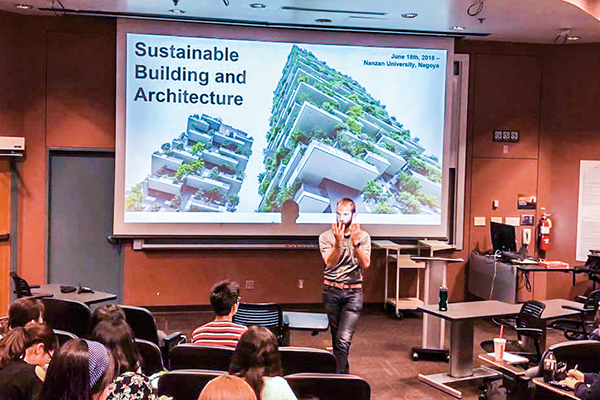
With globalization, the world today is full of conflicts and frictions. The solution often goes beyond the basic necessities of intercultural understanding and communication. If one wishes to eliminate the sources of those conflicts and to help create a sustainable society, it would be necessary to objectively examine the situations and the views of all the parties involved, sometimes including our own. The general theme of the Department of Global Liberal Studies is precisely to pursue this, that is, to seek solutions for local problems from a global perspective.
The curriculum for the first year and a half includes research skill courses and an intensive English program, culminating in an about six-week study-abroad at Arizona State University. The students then have an intensive training in a second foreign language of their choice. They also take courses on various subjects and issues, including political and economic conflicts, cultural diversity, intercultural communication, the nature of language, environmental ethics, and energy problems, in the first two years to become prepared for their own research in the junior and senior years. The curriculum for the last two years consists of research seminars and advanced courses.
All the courses are interactive with student participation. Some of the courses are offered in English and some in Japanese. And there is a third group of courses that use both languages.

Features of the Department
- The Department offers intensive training in English, culminating in an about six-week study-abroad program at Arizona State University in the first half of the second year, followed by substantial training in a second foreign language.
- The students are required to take research skill courses and basic courses in Global Studies and Sustainability Studies in the first two years to be prepared for advanced research in the last two.
- Advanced courses and seminars are offered in a wide variety of research areas, including politics, economics, literature, religion, communication, language, environment, and energy resources.
- There are courses offered in English, in Japanese, and in both. All the courses employ “active learning” with student participation.
- International students and returnees who need/want to develop academic Japanese language skills take a Japanese course as an elective for the second foreign language course.
